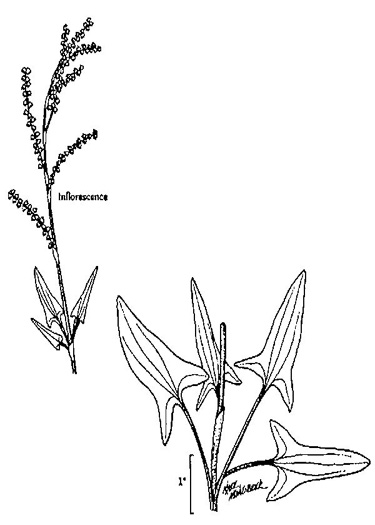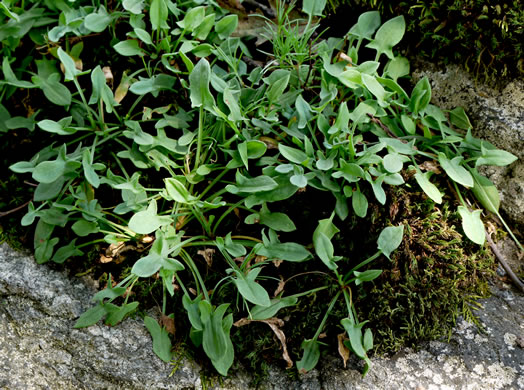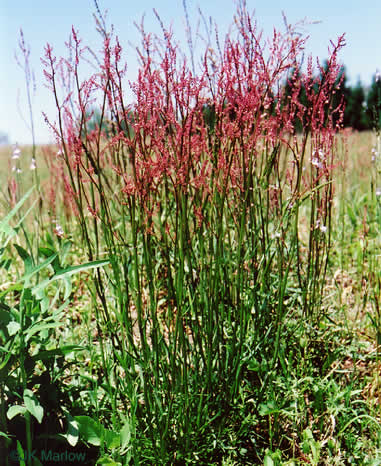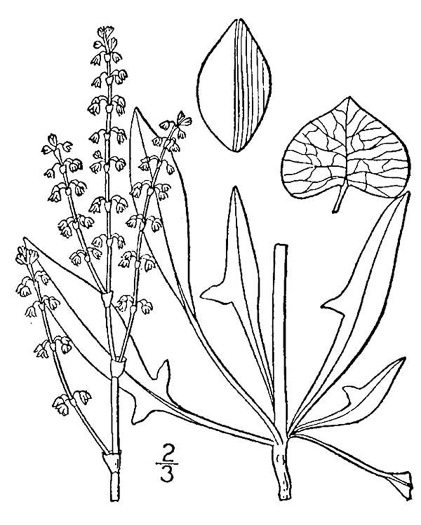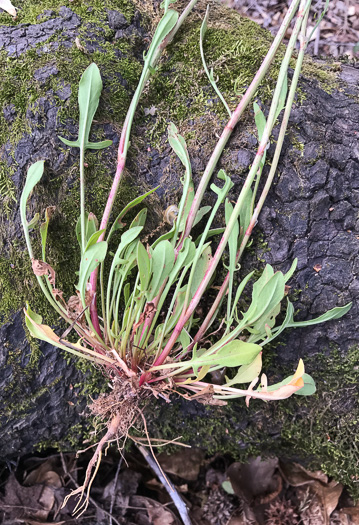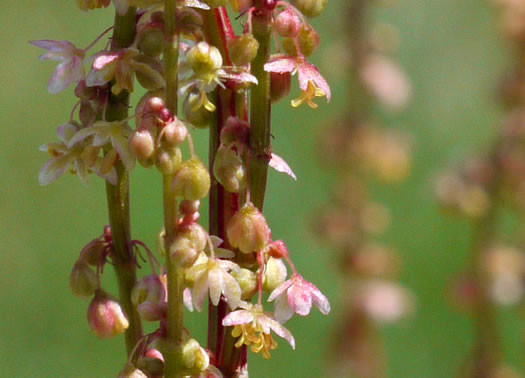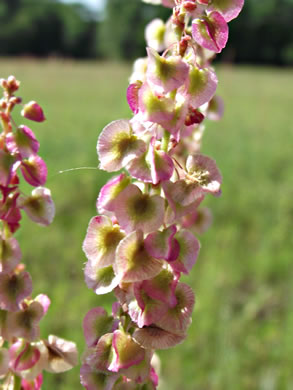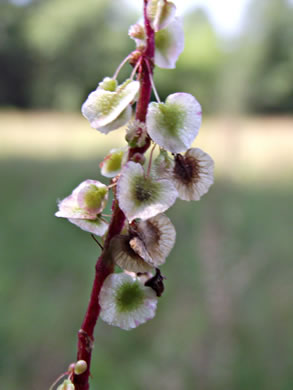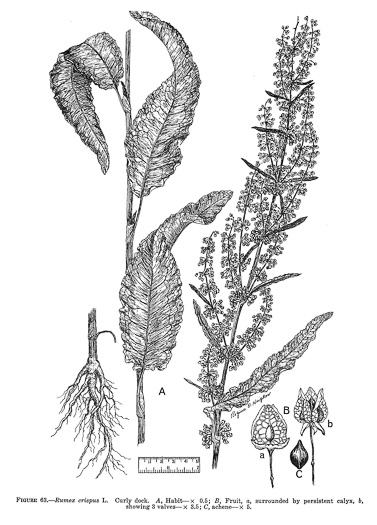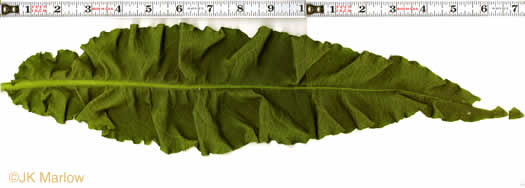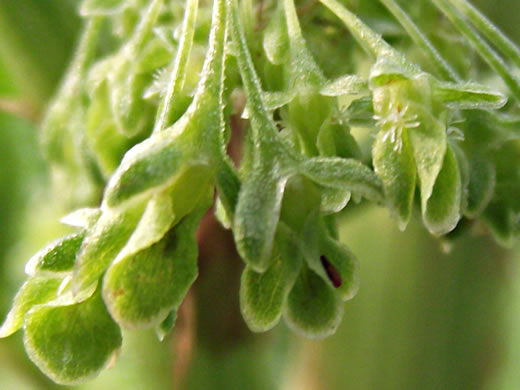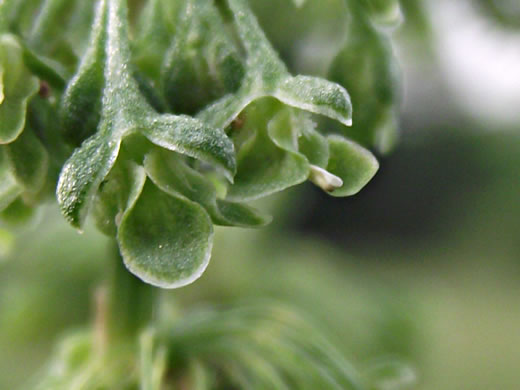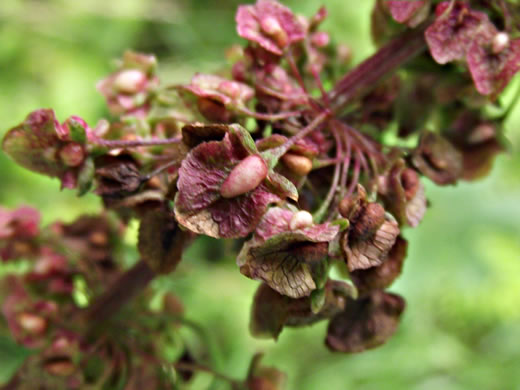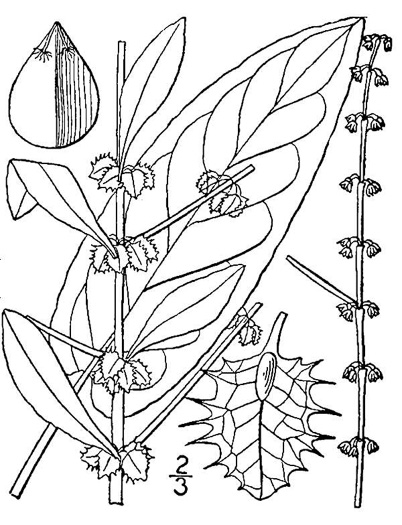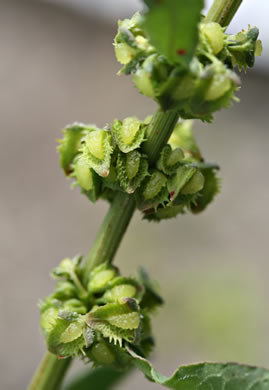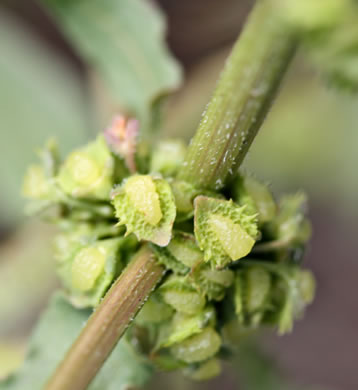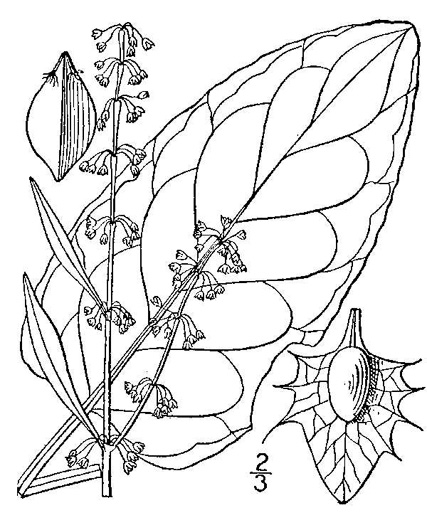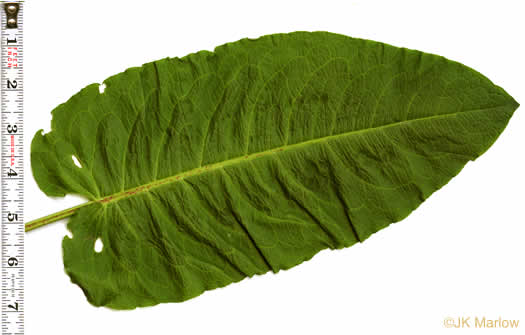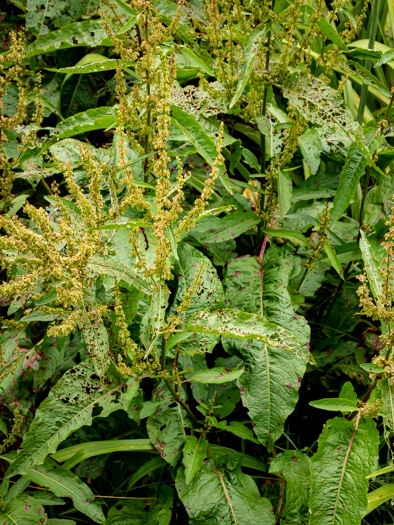Hovering over an image will enlarge it and point out features (works better on desktop than on mobile).
![]() A camera indicates there are pictures.
A camera indicates there are pictures.
![]() A speaker indicates that a botanical name is pronounced.
A speaker indicates that a botanical name is pronounced.
![]() A plus sign after a Latin name indicates that the species is further divided into varieties or subspecies.
A plus sign after a Latin name indicates that the species is further divided into varieties or subspecies.
Most habitat and range descriptions were obtained from Weakley's Flora.
Your search found 7 taxa.
Clicking ![]() one takes you to more information and/or pictures.
one takes you to more information and/or pictures.

![]()
![]() Common Name:
Sheep Sorrel, Red Dock, Sourgrass, Field Sorrel
Common Name:
Sheep Sorrel, Red Dock, Sourgrass, Field Sorrel
Weakley's Flora: (4/14/23) Acetosa acetosella FAMILY: Polygonaceae
SYNONYMOUS WITH PLANTS National Database: Rumex acetosella FAMILY: Polygonaceae
SYNONYMOUS WITH Vascular Flora of the Carolinas (Radford, Ahles, & Bell, 1968): Rumex acetosella 063-02-001 FAMILY: Polygonaceae
Habitat: Pastures, fields, roadsides, rock outcrops, grassy balds, gardens
Common (uncommon in GA Coastal Plain)
Non-native: Eurasia

![]()
![]() Common Name:
Wild Dock, Heartwing Dock, Sourgrass, Heartwing Sorrel
Common Name:
Wild Dock, Heartwing Dock, Sourgrass, Heartwing Sorrel
Weakley's Flora: (4/14/23) Acetosa hastatula FAMILY: Polygonaceae
SYNONYMOUS WITH PLANTS National Database: Rumex hastatulus FAMILY: Polygonaceae
SYNONYMOUS WITH Vascular Flora of the Carolinas (Radford, Ahles, & Bell, 1968): Rumex hastatulus 063-02-002 FAMILY: Polygonaceae
Habitat: Glades, barrens, xeric sands; eastwards in fields (especially sandy fields or dunes in the Coastal Plain), roadsides, disturbed areas
Common (rare in Mountains)
Native to the Carolinas & Georgia

![]() Common Name:
Patience Dock, Monk's-rhubarb
Common Name:
Patience Dock, Monk's-rhubarb
Weakley's Flora: (4/24/22) Rumex patientia FAMILY: Polygonaceae
SYNONYMOUS WITH PLANTS National Database: Rumex patientia FAMILY: Polygonaceae
SYNONYMOUS WITH Vascular Flora of the Carolinas (Radford, Ahles, & Bell, 1968): Rumex patientia 063-02-005 FAMILY: Polygonaceae
Habitat: Disturbed areas
Waif(s)
Non-native: Mediterranean Europe

![]()
![]() Common Name:
Curly Dock, Yellow Dock
Common Name:
Curly Dock, Yellow Dock
Weakley's Flora: (4/14/23) Rumex crispus ssp. crispus FAMILY: Polygonaceae
SYNONYMOUS WITH PLANTS National Database: Rumex crispus ssp. crispus FAMILY: Polygonaceae
INCLUDED WITHIN Vascular Flora of the Carolinas (Radford, Ahles, & Bell, 1968): Rumex crispus 063-02-006 FAMILY: Polygonaceae
Habitat: Disturbed areas, pastures, fields
Common
Non-native: Europe

![]() Common Name:
Fiddle Dock
Common Name:
Fiddle Dock
Weakley's Flora: (4/14/23) Rumex pulcher FAMILY: Polygonaceae
SYNONYMOUS WITH PLANTS National Database: Rumex pulcher FAMILY: Polygonaceae
SYNONYMOUS WITH Vascular Flora of the Carolinas (Radford, Ahles, & Bell, 1968): Rumex pulcher 063-02-008 FAMILY: Polygonaceae
Habitat: Disturbed areas, bottomland fields, bottomland forests
Uncommon (rare in Mountains) (rare in NC Piedmont)
Non-native: Eurasia

![]()
![]() Common Name:
Bitter Dock, Broadleaf Dock
Common Name:
Bitter Dock, Broadleaf Dock
Weakley's Flora: (4/14/23) Rumex obtusifolius FAMILY: Polygonaceae
SYNONYMOUS WITH PLANTS National Database: Rumex obtusifolius FAMILY: Polygonaceae
SYNONYMOUS WITH Vascular Flora of the Carolinas (Radford, Ahles, & Bell, 1968): Rumex obtusifolius 063-02-009 FAMILY: Polygonaceae
Habitat: Pastures, barnyards, disturbed areas
Common (uncommon in SC Coastal Plain, uncommon in GA Piedmont) (rare in GA Coastal Plain)
Non-native: Europe

Common Name: Spiny Emex
Weakley's Flora: (4/14/23) Emex spinosa FAMILY: Polygonaceae
SYNONYMOUS WITH PLANTS National Database: Emex spinosa FAMILY: Polygonaceae
Habitat: Disturbed areas, not recently collected and perhaps only a waif
Non-native: Mediterranean Europe
Your search found 7 taxa. You are on page PAGE 1 out of 1 pages.

